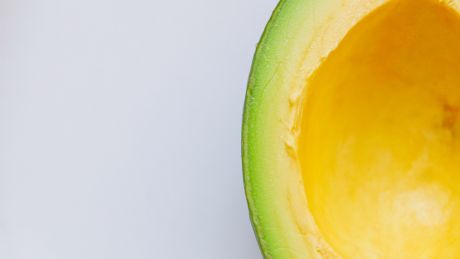How Healthy Are Healthy Fats?
Bad news – not as healthy as you had probably hoped

It’s basically impossible to eat a diet completely free of fat, which is a good thing, because we need some fat in our diet for our bodies to function. However, it’s not for nothing that government guidelines in the UK recommend that we cut down on the amount of fat in our diet, because people in the UK are eating too much of it.
But does that apply to so-called healthy unsaturated fats? If a fat is healthy, shouldn’t we try to cram as much of it into our diet as possible? Before ordering that crate of avocados we asked Dr Lucy Chambers, senior scientist at the British Nutrition Foundation, to shed some light on the subject.
Why do we need fat in our diet?
Dietary fat provides us with the essential fatty acids such as omega 3 and omega 6 that we can’t make ourselves but need in small amounts, as well as energy.
Fat is also required for a range of bodily processes, including maintaining the normal structure of cells in the body, and aids the absorption of the fat-soluble vitamins A, D, K and E.
What are the different types of fats?
Fats found in foods are typically unsaturated – including polyunsaturated and monounsaturated – and saturated fats. Unsaturated fats are found in foods such as nuts, olives, seeds, avocado, oily fish and oils derived from them.
Saturated fats are found in foods such as meat, cheese, butter, coconut oil and cream, and foods that contain these ingredients such as cakes, biscuits and pies.
Another type of fat – trans fats – appears in a small number of foods.
Sign up for workout ideas, training advice, reviews of the latest gear and more.
See related
- How Much Saturated Fat Should You Eat?
- What Is Cholesterol? Plus, How To Reduce Cholesterol Naturally
Are some more healthy than others?
Unsaturated fats are healthier types of fat and recommended as part of a healthy, balanced diet, but still should be eaten in small amounts because fat is very concentrated in calories and it can be easy to overconsume energy when eating a high-fat diet.
In the UK we are eating too much saturated fat. This is a concern because a high saturated fat intake is linked with high blood cholesterol, and that’s a risk factor for heart disease and stroke.
It is well established that trans fats, which are artificially produced, have a harmful effect on heart health. In the UK, the vast majority of trans fats have been removed from foods that previously contained them. Average intake of trans fat in the UK has fallen to around 0.7% of food energy, well below the recommended limit of 2%.
How much fat should you have in your diet and how should you split that between different fats?
The Department of Health recommends that, on average, the total fat intake of the UK population should be no more than 35% of energy consumed from food. For saturated fat, this figure is no more than 11% of food energy.
The reference intake for fat for men is 90g of total fat and 30g of saturated fat and for women it’s 70g and 20g, respectively. These are on food labels in the UK and are not intended as targets, but rather are approximate maximum amounts that adults should have each day.
Replacing saturated fat in the diet with unsaturated fat, for example by swapping butter or lard for spreads made with sunflower or olive oils, helps to reduce blood cholesterol and lowers the risk of heart disease and stroke.

Nick Harris-Fry is a journalist who has been covering health and fitness since 2015. Nick is an avid runner, covering 70-110km a week, which gives him ample opportunity to test a wide range of running shoes and running gear. He is also the chief tester for fitness trackers and running watches, treadmills and exercise bikes, and workout headphones.
